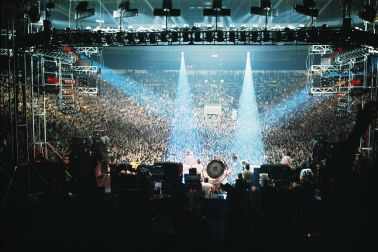In the last Channel 4 series of The Hotel, we saw Mark Jenkins, ex-owner of the Grosvenor hotel in Torquay, campaigning to attract more ‘posh people’ to his failing Victorian hotel. He was apprehensive, though, that he might not know how to handle any posh people that were seduced by this and did come. Posh people, he opined, ‘can be a nightmare because they want things done properly. The good thing about poor people is that they are just happy to be on holiday. Mind you,’ he added, ‘some poor people can be quite demanding, so you can’t win.’ It was possibly owing to statements such as this that Mr Jenkins was dubbed the ‘real life Basil Fawlty’. Mr Jenkins also smoked and was not ashamed of it.
One watches television news these days not to know what’s happening in the world, but to goggle in disbelief at both the subtlety and the insulting lack of subtlety of the leftist propaganda being pushed out. Similarly, realising that Mr Jenkins was a kind of holy innocent who was liable to say anything, I watched The Hotel partly to gauge current restrictions on freedom of speech. These must now be virtually absolute, because ‘poor people’ was about as controversial as it got.
But The Hotel was nevertheless entertaining. As a fan of the show, I stayed at the Grosvenor last week. The hotel is a lovely old Victorian seaside hotel gone to seed. It wants some filler and a lick of paint or two. The old sash window in my room rattled in the wind and let through gusts of cold air. But folded in two and wedged in the gap my receipt stopped the rattle, and the curtains, if pulled together with a bias to the right, excluded most of the draught.
Otherwise you couldn’t ask for more. The room was clean and heated. I do like a high ceiling, and the ceiling was as high as the room was wide, if not higher. Six little cartons of homogenised milk were supplied with the tea-making equipment. These were arranged in a neat circle with the snap-off lips uniformly facing inwards and meeting at the centre. A nice little touch this. At night the lighting wasn’t bright enough to read by, even with the newspaper article held under a bulb, but I had a handy pocket torch with me.
Mr Jenkins has lately sold his celebrated hotel to a Mr Richardson and is no longer there. This was as great a disappointment to me as it was, I am sure, to the other guests. But when I met them on the landings and on the stairs we greeted one another with the cheerful enthusiasm of fellow pilgrims glad to be treading the same faded carpets we’d seen every week on our screens.
On Saturday night, quite late, I went down to the bar in the entertainment lounge. The entertainment was a singer belting out old pop classics while dexterously accompanying himself on two keyboards and a karaoke machine. The audience was sparse — 15 people seated at four tables and two more at the bar. Audience and singer looked up expectantly as I entered the room. ‘I can’t stay long tonight,’ the singer was saying. ‘The wife’s lost her voice and I want to make the most of it.’ I’ll just have the one, I thought, seating myself primly at the bar.
Though few in number, everyone present was exactly as Mr Jenkins said, just happy to be on holiday. They were making the most of it. On the far side of the room, six pensioners seated around a circular table were not only singing along but also sometimes standing up, facing each other, an ecstatic parliament, and dancing together with their arms in the air. Near the stage a table for two was occupied by a woman with big, glamorous hair with a fellow in a flashy suit who had to be at least 95, but who walked unaided, albeit at a snail’s pace, backwards and forwards across the dance floor to the gents lavatory.
Next to them was a silent, attentive young couple surfacing for a break from sex, I imagined, yet remaining deeply bound by the spell of their intimacy. And near me was a heavily tattooed, palpably decent couple with a respectful eight- or ten-year-old lad, who eyed his singing, laughing, cheering parents with wonder and astonishment, perhaps not having seen them that tipsy before.
‘My next number,’ said the singer, ‘is by Roy Orbison, whom we tragically lost back in 1988. What a game of cards that was.’
Everyone except the lovers roared at this. The young lad’s mother was helpless with mirth, snorting uncontrollably through her fingers for a minute afterwards. I ordered another pint of lager. While I waited for it, I found that my feet, to my surprise, were tapping to the music. The singer was actually bloody good. ‘And a Jagerbomb, please,’ I said to the barman.






Comments